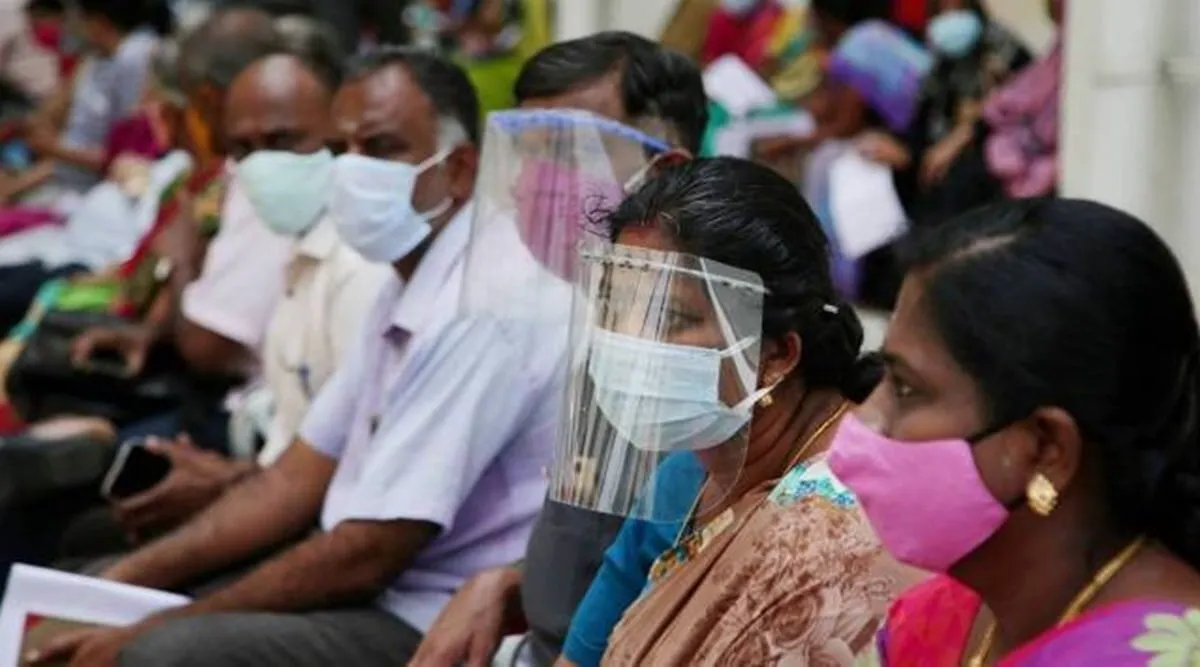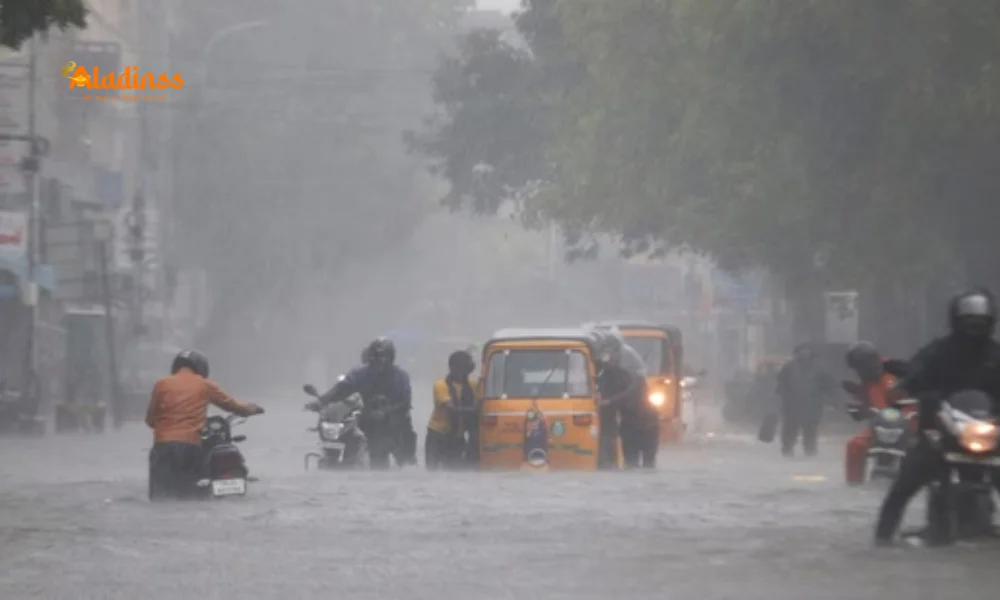Tamil Nadu Virus Surge: Mask Advisory Issued

Tamil Nadu Faces Viral Fever Surge: Mask Advisory Issued
A sudden surge in viral fever cases across Tamil Nadu has prompted the state’s Health Department to issue an urgent advisory, recommending that people wear face masks in crowded places. Over the past two weeks, the spread of viral infections, particularly in densely populated cities like Chennai, Coimbatore, and Madurai, as well as colder regions, has raised concerns. The Health Department has responded swiftly, ordering hospitals to test samples from patients with cold and flu-like symptoms to identify potential new viruses and prevent further spread.

Rising Viral Fever Cases Across Tamil Nadu
The rapid increase in viral fever cases over the last two weeks has put Tamil Nadu’s healthcare system on high alert. Urban centers such as Chennai, Coimbatore, and Madurai have reported a significant uptick in patients presenting with symptoms like fever, cough, and cold. Additionally, colder regions in the state, including hill stations like Ooty and Kodaikanal, have seen a spike in infections, likely exacerbated by seasonal weather changes. Health officials are closely monitoring the situation to determine whether a new strain of virus is responsible for the surge.
The Health Department has noted that densely populated areas are particularly vulnerable due to the ease of transmission in crowded settings. Public transport hubs, markets, and educational institutions have been identified as high-risk zones. The department’s proactive response includes issuing guidelines to hospitals across the state to collect samples from patients with flu-like symptoms for laboratory testing. This step aims to identify the specific virus or viruses driving the outbreak and assess whether they pose a broader public health threat.
Health Department’s Swift Response
To curb the spread of the virus, the Tamil Nadu Health Department has issued a directive to all hospitals to send samples from patients exhibiting symptoms of colds or flu for detailed testing. This measure is crucial for early detection of any new or mutated virus strains that could complicate containment efforts. Doctors have been instructed to take immediate action if tests confirm the presence of a novel virus, including implementing enhanced infection control protocols in healthcare facilities.
The department has also emphasized the importance of rapid response to prevent the outbreak from escalating. Hospitals are being equipped with additional resources, including testing kits and personal protective equipment (PPE), to manage the influx of patients. Health officials are working closely with virology labs to analyze samples and provide real-time updates on the nature of the virus. This coordinated approach aims to ensure that any potential public health crisis is addressed promptly and effectively.
Public Health Advisory: Wear Masks, Seek Treatment
The Health Department has issued a public advisory urging residents to take precautions to protect themselves and others. Individuals experiencing flu-like symptoms, such as fever, cough, sore throat, or body aches, are advised to seek medical attention immediately. Early diagnosis and treatment are critical to preventing complications and reducing the spread of the virus. The department has set up dedicated fever clinics in major hospitals to streamline testing and treatment for affected individuals.
In addition to seeking prompt medical care, the public has been encouraged to wear face masks in crowded places to reduce the risk of transmission. Masks are particularly recommended in settings like public transportation, shopping malls, and religious gatherings, where maintaining physical distance may be challenging. The advisory emphasizes that wearing masks is a simple yet effective measure to protect both individuals and the community from the spread of viral infections.
Special Precautions for Vulnerable Groups
The elderly and individuals with weakened immune systems, such as those with chronic illnesses or undergoing medical treatments, are at higher risk of severe complications from viral infections. The Health Department has specifically advised these groups to avoid attending large gatherings, including weddings, festivals, and other events where crowds are expected. This precaution is aimed at minimizing their exposure to the virus and ensuring their safety during the outbreak.
For those who must attend public events, the department recommends strict adherence to safety protocols, including wearing high-quality masks, practicing hand hygiene, and maintaining physical distance whenever possible. Community leaders and event organizers have also been urged to implement crowd control measures and ensure adequate ventilation at venues to reduce the risk of transmission.
Impact on Urban and Rural Areas
The viral fever surge has affected both urban and rural areas, though urban centers like Chennai, Coimbatore, and Madurai are experiencing the highest caseloads due to their dense populations. In Chennai, hospitals have reported a significant increase in outpatient visits, with many patients seeking treatment for fever and respiratory symptoms. Coimbatore’s industrial areas and Madurai’s temple-centric gatherings have also contributed to the spread, prompting local authorities to enhance surveillance and public awareness campaigns.
In rural areas, where access to healthcare facilities may be limited, the Health Department is working to ensure that primary health centers (PHCs) are equipped to handle the outbreak. Mobile medical units have been deployed to remote regions to provide testing and treatment services, ensuring that even underserved communities receive adequate care. These efforts reflect the state’s commitment to addressing the outbreak comprehensively across all regions.
Broader Public Health Measures
The Tamil Nadu government is taking a multi-pronged approach to manage the viral fever outbreak. In addition to testing and mask mandates, public health campaigns are being rolled out to educate residents about preventive measures. These campaigns emphasize the importance of personal hygiene, such as frequent handwashing, and the need to avoid sharing personal items that could spread the virus. Schools and colleges have been directed to monitor students for symptoms and report any clusters of cases to health authorities.
The government is also collaborating with private hospitals and diagnostic labs to expand testing capacity and ensure accurate reporting of cases. This partnership aims to create a robust surveillance system to track the spread of the virus and identify potential hotspots. By leveraging technology, such as real-time data dashboards, the Health Department is working to provide transparent updates to the public and maintain trust during this health crisis.
Preparing for the Festive Season
With the festive season approaching, including major events like Deepavali, the Health Department is intensifying efforts to control the outbreak. Festivals typically draw large crowds, increasing the risk of viral transmission. Authorities are working with local governments to implement safety guidelines at religious and cultural events, such as limiting attendance and enforcing mask-wearing. These measures aim to balance public health priorities with the cultural significance of the festive season.
The public is being urged to remain vigilant and follow health guidelines to prevent a further surge in cases. By adhering to mask-wearing and seeking timely medical care, residents can play a critical role in containing the outbreak and protecting vulnerable populations. The Health Department’s proactive measures, combined with public cooperation, are essential to managing this public health challenge effectively.
Comment / Reply From
No comments yet. Be the first to comment!











